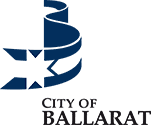The article below is from Let's Recycle
Olympic waste legacy opportunity ‘missed’
23 July 2012
The organisers of London 2012 are unlikely to achieve a zero waste legacy in East London due to a low level of engagement with organisations outside of the Olympic Park, according to a new report.
The report ‘Towards a One Planet Olympics Revisited’ was published by sustainability charity BioRegional and the World Wildlife Fund (WWF) on Thursday (July 19). It analyses the Olympic Delivery Authority’s (ODA) and the London Organising Committee of the Olympic Games’ (LOCOG) progress again targets laid out in the London 2012 sustainability strategy, which was published in 2005.

- The report notes that the reuse and recycling targets for the demolition and building phases of the Olympic Park 'substantially exceeded' targets
And, while it claims that reuse and recycling targets for the demolition and building phases of the project have been ‘substantially exceeded’ it states that the legacy targets will not be met in time for the Games or even after they have finished.
In particular, it points to a low level of engagement with reuse and other organisations outside of the Olympic Park as well as a focus on recycling rather than reuse during the building phase.
The report states: “On the one hand, there has been a huge success in delivering against an ambitious waste strategy; all the core targets are either achieved or on track. On the other hand the wider opportunity, and stated ambition, to be a catalyst for far wider changes has been missed.”
Legacy
In the original strategy five legacy targets were laid out. These were:
- Zero waste policies extend across East London based on high recycling rates and residual waste converted to compost and renewable energy;
- Increased market for recycled products;
- Training and job opportunities locally in (re)manufacturing;
- Local and sustainable materials supply chains maintained, and;
- A ’green’ business hub.
Commenting on whether the targets will be met, the report states: “We are not confident that any of these promises will be met, certainly not in time for the Games, or in legacy. What all these have in common is that they relate to activities happening outside of the Olympic Park and would have required a higher level of engagement with local reuse networks and other appropriate organisations. Whilst the challenge in delivering this cannot be underestimated, the huge scale and manpower of London 2012 could and should have made better progress.”
"On the one hand, there has been a huge success in delivering against an ambitious waste strategy; all the core targets are either achieved or on track. On the other hand the wider opportunity, and stated ambition, to be a catalyst for far wider changes has been missed."
- BioRegional and WWF
As an example of a missed opportunity the report cites social enterprise BioRegional’s experience working on site to support a reclamation approach to demolition.
Whilst a high level of recycling was achieved, the report notes that “some of this came at the expense of the reuse rate of less than 1%; considerably below industry best practice. Having a joint target (reuse and recycling) did not reinforce adopting the waste hierarchy, hence the simpler and more controllable options of recycling and recovery took precendence.”
LOCOG has previously been criticised by council leaders who said it could have done more to reduce waste in the run up to the Games (see letsrecycle.com story).
Progress
Looking at achievements within the Olympic park, the report notes that ODA exceeded it 90% reuse and recycling target for the demolition and building phase, with 98.5% of demolition waste recycled and 99% of building waste recycled.
The report said the ODA’s success was due to a number of actions including its work with contractors and waste companies to enable recycling to take place as well as a procurement system that considered material type and building methods, helping to reduce the amount of waste arising.
Elsewhere the authors note that LOCOG’s actions to date to achieve zero waste directly to landfill “demonstrate a genuine intention to try and deliver this challenging target”. This includes its work with Coca-Cola to create a consumer-facing campaign which includes recycling bins and a custom-made mobile recycling vehicle and working with Heineken to develop a new recyclable plastic bottle which can be included in the recycling bins at Olympic venues.
The report states that LOCOG’s game-time Zero Waste Games Vision is an “exemplary blueprint for other event organisers to follow” as it demonstrates the importance of engaging with people throughout the supply chain.
Sustainability
In addition to waste and recycling, the report also looks at climate change, biodiversity, healthy living and culture and heritage. Notably it highlights a failure to meet the renewable energy targets set out in the original bid.
Related Links
Commenting on the report, Sue Riddlestone, BioRegional’s executive director who was involved writing in the original strategy, said: “London 2012 has set the sustainability bar for future Summer Olympics. It has built venues which set the standard for energy saving and embodied carbon. We are proud to have been part of setting the vision for London 2012 and helping deliver it.
“That said with over-consumption of resources driving rapid environmental degradation, London 2012 should have pushed sustainability more and had a stronger focus on changes beyond the Olympic Park. It is important that lessons are learned and that a commitment to sustainability is a key criterion by which the 2020 Summer Olympics bids are judged.”
















